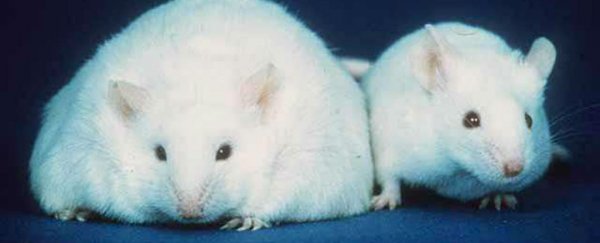There's still much that we don't understand about obesity and its underlying causes, but scientists in Germany say they've discovered a genetic 'switch' that could effectively turn obesity on or off.
The new report is based on epigenetics research - that is, the way the genes in our bodies change based on chemical and environmental factors, rather than modifications in the fundamental DNA genetic code itself. We're all born with a certain set of genes, but these can be turned on or off, or dialled up or down, though processes inside the body (it's part of the reason why identical twins don't always look identical).
It's one of these epigenetic tags that the scientists have identified, and it works like a light switch rather than a dimmer. "Once the switch is triggered, it is a lifelong, epigenetically-driven decision that ends in a stable, either a lean or obese phenotype," lead author Andrew Pospisilik from the Max Planck Institute of Immunobiology and Epigenetics. "The effect is akin to a light switch - on or off, lean or obese. Typically, we usually consider epigenetic control of disease to act much more like a dimmer, shifting phenotypes like body weight up or down gradually."
A particular gene called Trim28 was found to affect weight in a large group of mice, which led the team to study 13 pairs of identical human twins in which one was obese and one was lean. Sure enough, there was less Trim28 activity in the twins who were obese, compared with those who had no weight issues.
Previous studies had shown a link between Trim28 and the genes that control weight, so the researchers hypothesise that this is an epigenetic tag that can indeed control obesity in a binary way.
"Our data not only helps to understand the interaction of genetic and epigenetic factors in obesity and other diseases, they have implications for how we think about evolution," says Pospisilik. He's referring to the idea of polyphenism: a scenario where an identical genotype (what an organism is, based on its fundamental genetic code) can lead to different phenotypes (what an organism becomes when environmental factors are added to that code).
We know that epigenetic information can be passed through the generations in animals, though there's still a lot of unanswered questions - particularly regarding how this might work in humans. This new study might help us understand how genetic variations are passed on, as well as leading the way towards improved treatments for those living with obesity.
The next step is to work out whether diet, stress, drugs or some other factor can flip this switch on or off. The team's work has been published in the journal Cell.
